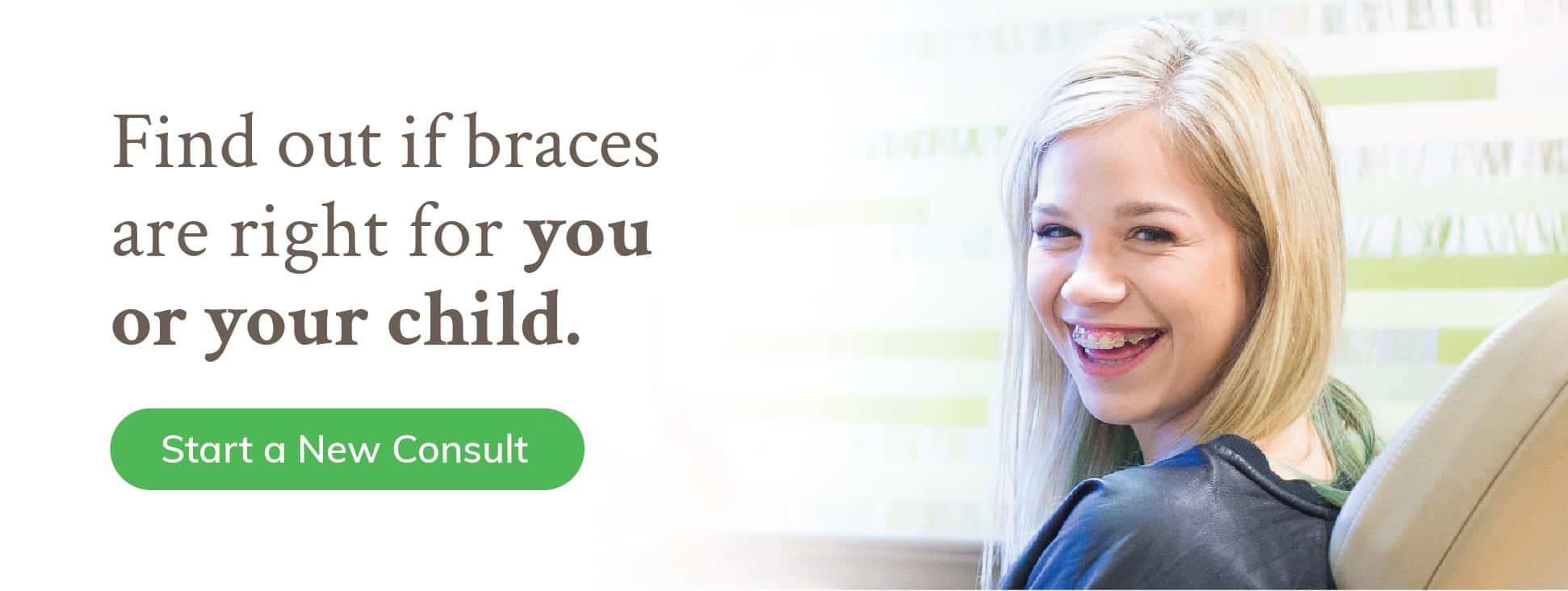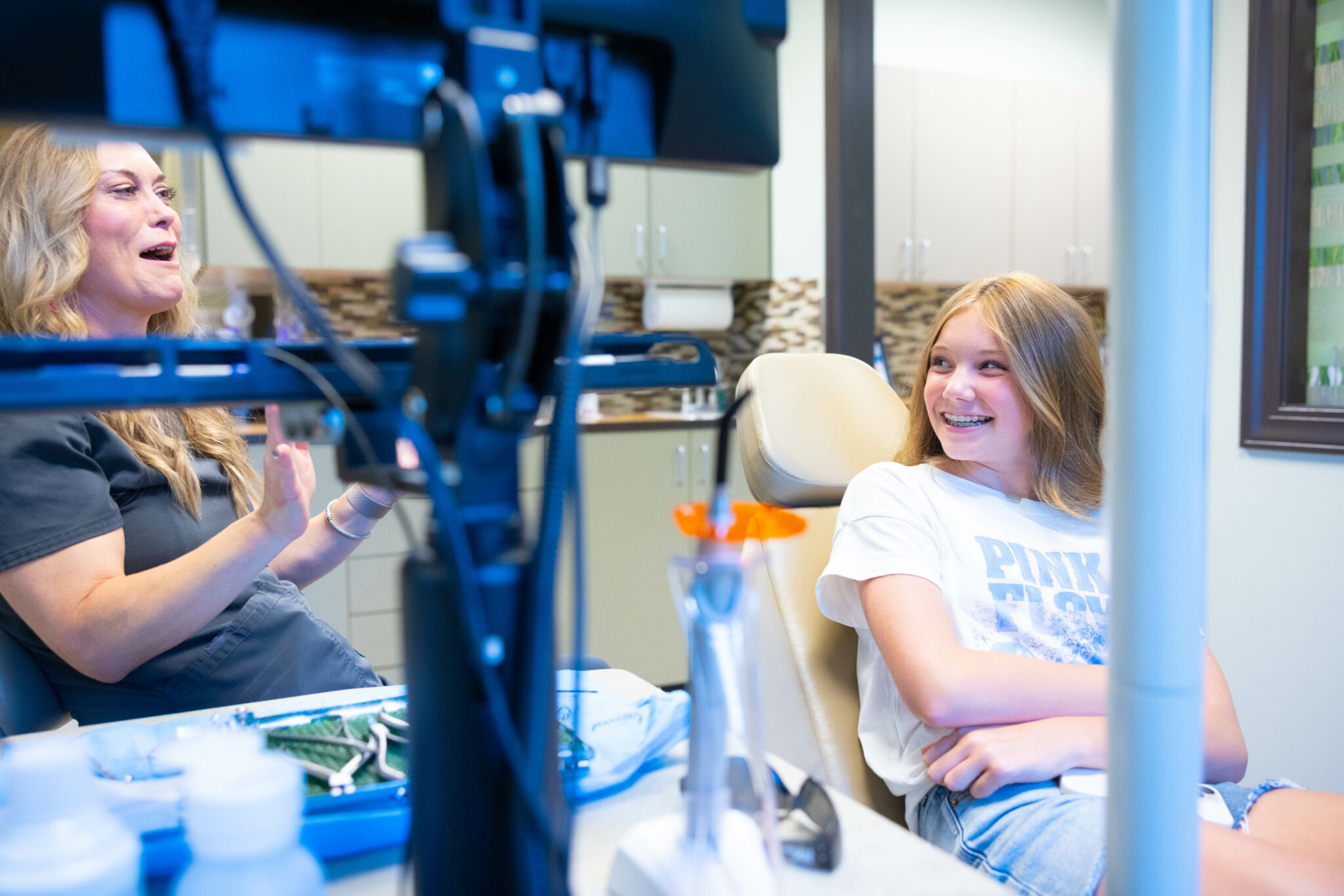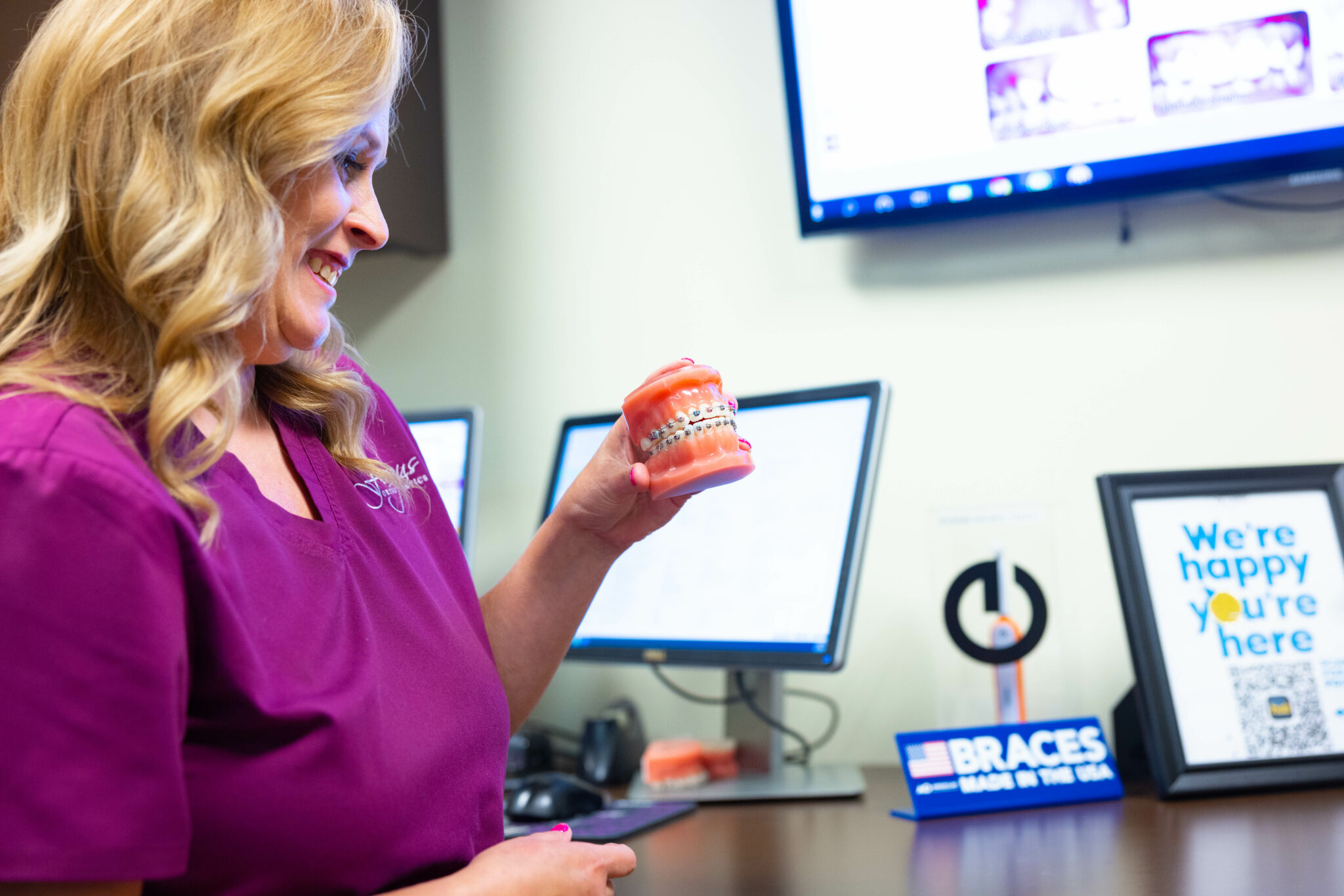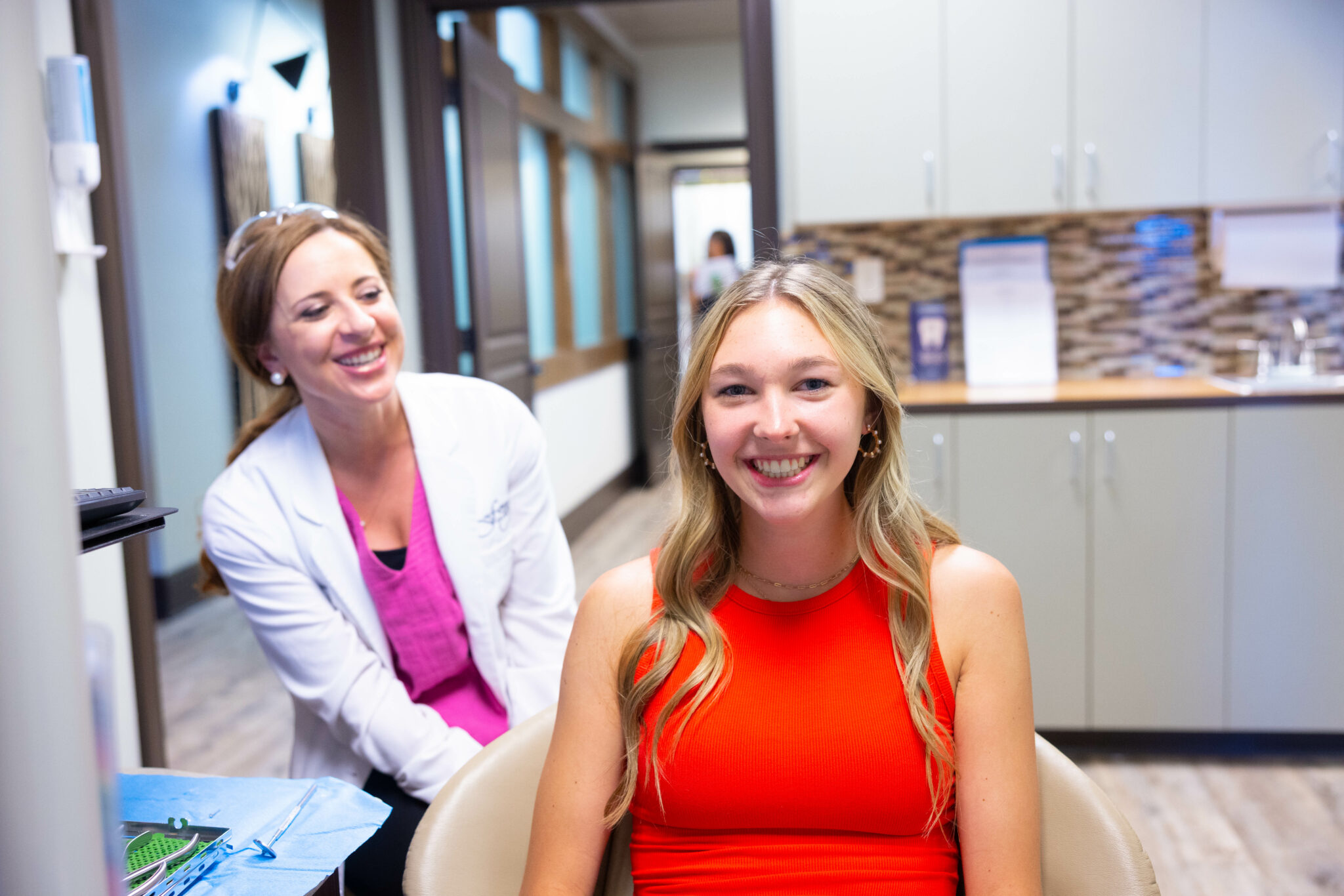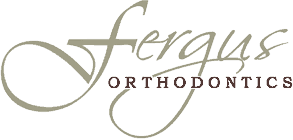Braces straighten teeth — that part we all know. But can they also play a role in improving speech? In many cases, yes.
At Fergus Orthodontics, we love seeing the confidence that comes from a straighter smile. Many parents are also surprised to learn that orthodontic treatment can sometimes improve speech clarity, especially when alignment issues make certain sounds more difficult.
How Teeth and Jaw Alignment Affect Speech
Our mouths are carefully designed for speaking. The position of the teeth, the shape of the dental arches, and the way the tongue rests and moves all work together to form sounds. When the teeth or jaw are misaligned, those movements can become less efficient.
Sounds such as “s,” “ch,” “th,” “l,” “t,” and “z” depend on precise tongue placement against or near the teeth and palate. If the teeth are positioned too far forward, too far back, or unevenly spaced, the tongue may struggle to make complete contact, leading to mild articulation issues such as a lisp or muffled speech.
Types of Misalignment That May Affect Speech
Orthodontic treatment, such as braces or clear aligners, can help correct a variety of bite problems that sometimes contribute to speech difficulties. Common bite issues include:
- Overbite
- Underbite
- Crossbite
- Deep bite
- Open bite
- Crowded teeth
- Gapped teeth
For example, crowded teeth can be linked to a narrow palate. In these cases, a palate expander may be recommended. This gentle orthodontic appliance gradually widens the upper jaw, creating more space for teeth and giving the tongue room to move naturally during speech.
How Braces May Support Clearer Speech
Orthodontic treatment works by guiding the teeth and jaw into better alignment, which, in turn, can improve how the tongue and lips move during speech. While braces are not a substitute for speech therapy, they can make it easier to form sounds correctly once the teeth and jaws are appropriately positioned.
Here are a few ways orthodontics can help create a better foundation for speech:
Braces Correct Bite Alignment
A misaligned bite, such as an overbite or open bite, can make it more difficult to pronounce certain sounds like “d” or “t.” Bringing the teeth into proper alignment can help the tongue reach those areas more easily, supporting more precise articulation.
Braces Support Natural Lip Placement
Lip movement plays a significant role in speech. When the front teeth are crooked or misaligned, it can interfere with how the lips meet or move. Straightening the teeth can help restore a more natural lip position, which may make sounds like “m,” “p,” and “b” easier to form.
Braces Can Improve Tongue Placement
Some speech sounds are produced by the tongue pressing against the back of the upper teeth or the roof of the mouth. When teeth are out of place, that contact point shifts, which can make it harder to form crisp, clear sounds. Orthodontic treatment can help align the teeth, allowing the tongue to rest and move more comfortably.
Braces Can Refine Dental Arch Shape
The half-circle shape of your teeth is called the dental arch. If the arch is too narrow or too wide, it can alter airflow and tongue space, both of which affect pronunciation. Braces and orthodontic expanders can help achieve a balanced arch that supports both comfort and clarity.
Orthodontic Treatment and Speech Therapy
While braces can address the structural aspects of speech, some issues may still require the help of a licensed speech therapist. Speech therapy focuses on retraining the muscles of the mouth, tongue, and lips to move efficiently during speech.
In many cases, the best outcomes come from a combination of orthodontic treatment and speech therapy. For instance, if a child has adapted to a bite problem by changing how they move their mouth or jaw, those learned habits might continue even after the bite is corrected. Speech therapy can help retrain those movements once the teeth and jaw are properly aligned.
Speech therapy can begin before or after orthodontic care, but your orthodontist and speech therapist may coordinate to ensure timing and treatment complement each other.
FAQs About Speech and Orthodontics
When should I have my child evaluated for braces?
The American Association of Orthodontists recommends that children have their first orthodontic evaluation by age 7. If your child is showing signs of speech difficulty or bite issues, it’s entirely appropriate to schedule an earlier consultation.
Can crooked teeth cause a lisp?
Sometimes. Misaligned teeth or jaw positions can make it harder for the tongue to form certain sounds, including “s” and “z.” However, not every lisp is caused by orthodontic problems. A thorough evaluation can determine whether orthodontic care, speech therapy, or both would be most helpful.
Will braces make speech harder at first?
When braces are first placed, it can take a week or two to adjust to them. Some children may notice temporary changes in how they pronounce certain sounds as they get used to the new appliances, but these usually resolve quickly.
Can braces fix speech issues on their own?
Braces can improve speech when the cause is structural, such as misaligned teeth or a misaligned jaw. However, not all speech issues are caused by alignment problems. Your orthodontist may recommend collaborating with a speech therapist for the best results.
Speech Support with Braces in Jonesboro, AR
Orthodontic treatment can create the foundation for clearer speech by aligning the teeth and jaws, but every patient is different. At Fergus Orthodontics in Jonesboro, AR, we take a comprehensive approach that looks at the whole picture — function, comfort, and confidence.
If you’re curious whether orthodontic treatment could help support your child’s speech development or comfort, schedule a consultation with us. Together, we can determine the right path toward a healthy, confident smile and more transparent communication.




